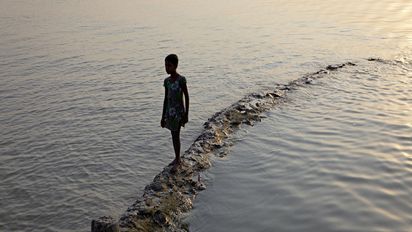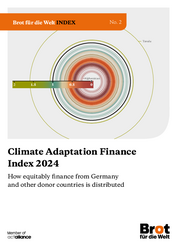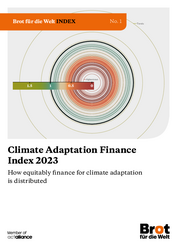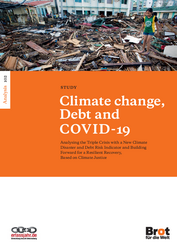
Implementing the Paris Climate Agreement
Year after year the average global temperature reaches new record levels and CO2 emissions worldwide are higher than ever. The necessary 1.5 degree limit set in Paris can only be adhered to when the international community finally takes the Paris climate agreement seriously.
Mitigating the Climate Crisis
Under the Paris Climate Agreement, the international community has agreed upon limiting global warming to less than two degrees Celsius compared with pre-industrial levels and, if possible, of not exceeding 1.5 degrees Celsius. Even with this rise in temperatures, however, climate change will have severe and almost uncontrollable effects. Yet the world community is on the way to far overstepping even this threshold – with unforeseeable consequences for life on Earth.
The Catastrophic Scenario of Five Degrees More
Although the Paris Agreement is binding under international law, the efforts to protect the climate are left to the states themselves as voluntary measures. Unfortunately, the current commitments by state signatories are only sufficient to limit global warming to some three degrees Celsius. If not all states keep their promises made in Paris, the Earth will even head for a global temperature rise of up to five degrees by the end of the century. A catastrophic scenario made all the more likely by the announcement of the United States to leave the Paris Agreement in 2020. The higher the temperature rises, the more devastating the effects of climate change will be and the more difficult it will be to mitigate.
Serious Climate Policy for the 1.5 Degree Limit
That is why all states must finally lay down binding rules for the implementation of the Paris Agreement. This includes climate protection measures as well as agreements on adaptation to climate change and their financing. These rules make the agreement become an effective convention. The Paris Protocol is intended to oblige states to report transparently and close loopholes for obstructionists and truants. Since the rich countries in particular are contributing too little to climate protection, it is important to commit them in forthcoming negotiations to significantly larger contributions. This will also strengthen the confidence of the poorest countries in the process of climate negotiations.
What Brot für die Welt Does
The central concern of our climate policy work is to mitigate climate change and its consequences for humans and nature. We focus on the situation of the poor and particularly vulnerable population. This is why we support and demand:
- low-carbon development, climate and resource protection;
- adaptation to climate change;
- human rights-based responses to climate-related risks and loss and damage.
We support, for example, projects which strengthen the resilience of the affected in the face of extreme weather. For instance, small farmers can learn how to adapt their cultivation methods and which crops are more robust and better able to withstand drought.
Downloads





